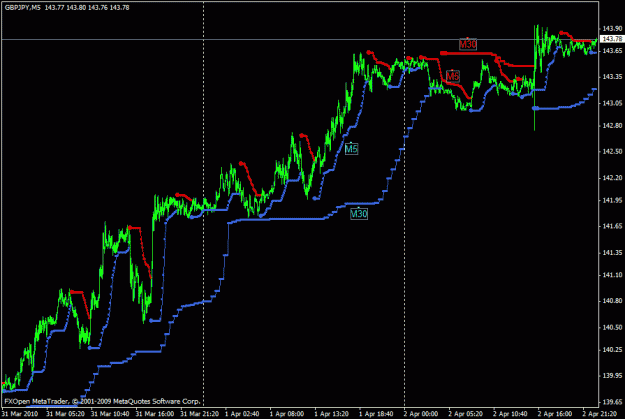programming exclusively in MQ4 for a year. During that time I have
established my own set of coding standards to help simplify the
understanding of my MQL source code. I submit these standards so that:
1) others can understand my conventions when they see my code and
2) adopt these conventions for their own code if they so desire.
I have revised this post based on the suggestions of Member 7bit.
I am also willing to work with others in establishing coding standards.
MQL Coding Standards v03 by Ron Mauldin
File Naming Conventions
Here is my standard file name:
“AA_ProgramName_Function_TVV.mqX” where...
AA = Authors Initials
ProgramName is a brief description of the program function.
T = Type of program, where:
- I = Indicator
- E = Expert advisor
- N = iNclude
- L = function Library
Function = (Used only with iNcludes) The function of the iNclude where:
- Calc = Calculations
- Anlz = Analyze
VV = Version number
X = standard Metatrader Extensions… h/4/5/etc.
So for instance RM_TimeSuite_L01.mq4 would indicate the program was
written by “RM” (me), the program function is a Time Suite, it is a function
Library with the version number “01”.
MQ4/MT4 Variable Naming Conventions - Data Type Prefix
The first two or three characters of a variable name are lower case and indicate:
- type of variable {f=function, b=buffer array, g=global, l=local, p=parameter, c=constant, e=external},
- data format {i=int, d=double, b=bool, d=datetime, v=void} and
- if the variable is an array… add an “a”.
Here are some examples:
- fvFunction() – a function that returns nothing (void).
- fiHourGMT(int piServer_GMT_Offset) – a function that returns and integer and has a single integer input parameter.
- lsMonth – a local string.
- gdItemValue – a global double.
- ebUseThis – an external global boolean.
- ctPresetDateTime – a constant datetime value.
- bdIndicatorName – One of the eight possible indicator or data buffers and is a double.
- ldaArrayName – An array that is a local double.
MQ5/MT5 Variable Naming Conventions - Data Type Prefix
The first three or four character prefix of a variable name are lower case and indicate:
- kind of variable {f=function, b=buffer array, g=global, l=local, p=parameter, c=constant, e=external},
- data types:
cs = char signed
cu = char unsigned
ss = short signed
su = short unsigned
is = int signed
iu = int unsigned
ls = long signed
lu = long unsigned
bo = bool
st = string
db = double
fl = float
co = color
dt = datetime
en = enumerations
sc = structures
cl = classes
vo = void - if the variable is an array… add an “a”.
Here are some examples:
- fvoFunction() – a function that returns nothing (void).
- fisHourGMT(int piServer_GMT_Offset) – a function that returns and integer and has a single integer input parameter.
- lstMonth – a local string.
- gdoItemValue – a global double.
- eboUseThis – an external global boolean.
- cdtPresetDateTime – a constant datetime value.
- bdoIndicatorName – One of the eight possible indicator or data buffers and is a double.
- ldoaArrayName – An array that is a local double.
Control Structures And Braces
In general, indent each level three spaces (the MetaEditor defaults of 3 spaces when you use the <Tab> key )
and do not include unnecessary spaces and lines… except to line up for clarity.
Conform to the One True Brace Style, the most widely used formatting style for C-Like languages. Never use
the short forms for if/else constructs, always fully write them out with braces, even if it is only a one liner.
This greatly helps readability!
When a parenthesis is "syntactically needed" for either functions or control statements, do not include a space
before or after the parenthesis... i.e. "if(y == x){".
Here is a standard example with comments:
int start(){
for(i=10, i>=0, i--){
if(condition1 || condition2){
shortsingleaction1;
}else if(condition3 || condition4){
verylongsingleaction2;
}
if(condition5 || condition6){
multiaction3;
multiaction4;
}else if((condition10 || condition11) && //split long statements and
(condition12 || condition13)) { //try to align similar conditions
switch(condition){
case 1:
multiaction5;
break;
default:
multiaction6;
break;
}
}else{
singleaction2;
}
}
return();
} Insert a space before and after operators:
// right
foo = a * (b + c);
// wrong
foo=a*(b+c);
// exception from the rule: for loops, function default arguments
// have no space around operators, only after the comma or semicolon
// function calls have no space before the opening brace
// but while, if, for have one.
/**
* comment all function declarations this way
*/
int bar(int a, int b=1) {
int i;
int x;
for (i=0; i<a; i++) {
x += i * b;
}
return(x);
}
- Indicator layout template that shows how to separate code so as to be used/reused by both Indicators and Expert Advisors.
- Storing global variables that are only updated once at the beginning of each bar.
- Standard Indicator Loop Setup
- I would be very interested in working with others to establish EA standards and template(s).
